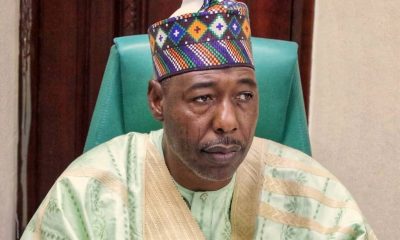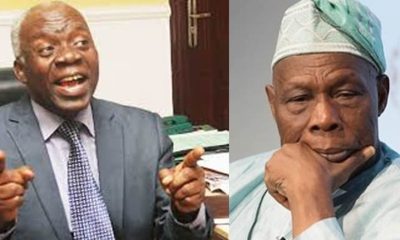Business
Fresh trouble over supply volume in Dangote refinery petrol
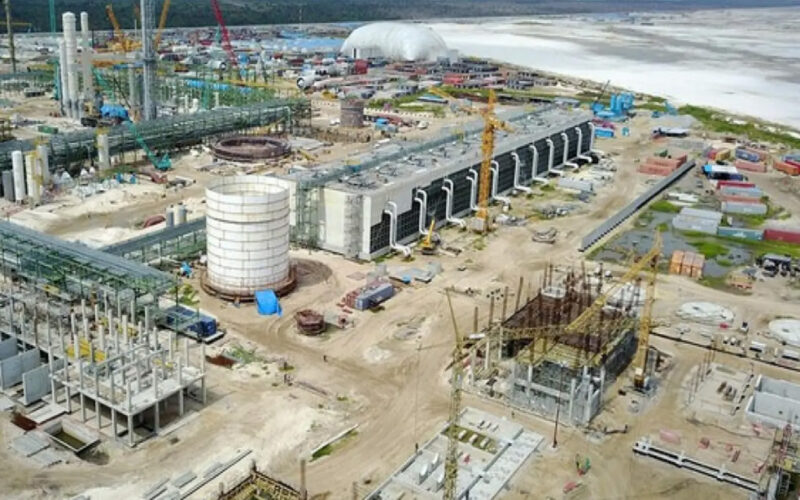
Fresh trouble over supply volume in Dangote refinery petrol
LAGOS — More controversy has emerged in the execution of a sale-purchase deal on premium motor spirit, otherwise known as petrol, between the Nigerian National Petroleum Company Limited, NNPCL, and Dangote Refinery.
NNPCL last weekend said Dangote could only deliver 16.8 million litres out of the 25 million litres it initially agreed with NNPC.
A source at the NNPCL also told Vanguard, yesterday that the refinery is struggling to deliver the 16.8 million litres it promised.
READ ALSO:
- School teachers begin indefinite strike in Abuja
- Police parade suspected ritualists, armed robbers in Osun
- Students can reapply for loans, we’ve resolved BVN verification glitch – NELFUND
But with the latest delivery figure it disclosed, Dangote must have significantly surpassed its promised delivery as well as the national demand put at over 40 million litres per day.
This also means that Dangote can make further petrol importation unnecessary.
But against the backdrop of this latest development, Vanguard learned that importation by NNPCL may have intensified with several consignments, totalling over 135 million litres, within three weeks from September 27, 2024, with the latest import arriving Friday.
This also implies a sudden excess supply of petrol barely a few days after the country was suffocated by acute shortage of the product, resulting in a sharp rise in the price.
Speaking to Vanguard on the development, the Group Chief Branding and Communications Officer of Dangote Refinery, Anthony Chiejina, stated: “We have already loaded 111 million litres of petrol and the exercise is ongoing.
“We are refining and have no reason not to load. So, loading is ongoing and we would continue to provide the product to the market.”
Fresh trouble over supply volume in Dangote refinery petrol
Business
8 financial mistakes to avoid in 2025
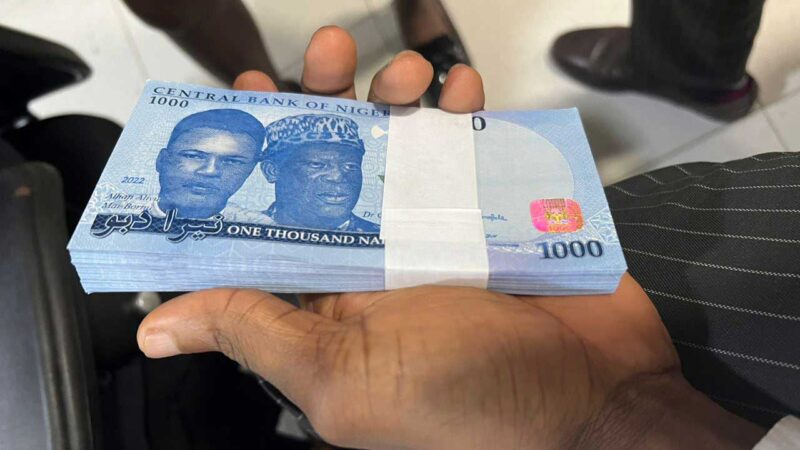
8 financial mistakes to avoid in 2025
Managing your money is more crucial than ever as 2025 approaches. Although Nigeria’s economy is unpredictable, you might go from barely making ends meet to actually flourishing by avoiding common financial mistakes.
Here are eight financial mistakes to avoid in 2025.
1. Taking unnecessary loans
Although taking out a loan can seem tempting, doing so can eventually make you take on more debt. High interest rates and undisclosed costs are some of the features of loans, which may quickly add up and make repayments difficult. Before taking out a loan, always consider whether it is necessary and make sure it fits with your financial situation. Consider whether you truly need anything before taking out a loan.
2. Mixing personal and business finances
Combining your personal and business money in a single account could lead to confusion. Keep them separate to ensure transparency and accountability. If your business generates your major income, pay yourself a salary and keep separate accounts for personal and business spending. This can help you keep organised and avoid money problems down the road.
READ ALSO:
- CNPP urges opposition to unite against Tinubu’s second term
- 25-year-old man arrested for allegedly kidnapping minor in Kano
- Protest in Ondo community over plans to impose monarch
3. Investing without proper understanding
Investing is an intelligent way to build wealth, but putting your money in projects you don’t completely understand might cause harm. Whether it’s stocks, real estate, or mutual funds, take the time to study the dangers and benefits while seeking professional counsel. Do not fall into “get-rich-quick” schemes and instead use technology to enhance your knowledge. And, as you invest carefully, avoid making reckless lifestyle decisions that strain your budget. These decisions have the potential to undermine your progress toward financial stability.
4. Confusing saving with investing
Savings accounts provide security and access to funds, but they typically fail to keep up with inflation. Investing, on the other hand, can help you create wealth through earnings that compound. Distribute funds for suitable investment options, such as equities or mutual funds, for long-term goals like retirement or owning a home. Seek advice from financial professionals to create a diverse portfolio.
5. Neglecting an emergency fund
Without an emergency fund, unexpected expenses such as car maintenance, medical expenses, or sudden job losses may arise. These unforeseen expenses might throw you off if you don’t have an emergency fund. Aim to accumulate 12–18 months’ worth of living costs in liquid funds in a different account. Having this reserve will help you feel more at ease and prevent you from depending on loans when things get hard.
READ ALSO:
- Osimhen scores 10th goal as Galatasaray beat Goztepe 2-1
- UN accuses Israel of ceasefire breach
- Fulani herdsmen from Nigeria kill five Cameroonian soldiers, says MP
6. Living pay cheque to pay cheque
If you spend every naira as soon as it arrives, leaving little provision for emergencies or savings, you risk becoming overly reliant on each pay cheque for everyday costs. Identify and reduce nonessential spending, such as eating out or unused subscriptions, and set aside some funds for savings. If possible, search for ways to supplement your income, such as freelancing or converting a pastime into a side hustle.
7. Ignoring budgeting
It’s simple to lose track of your finances without a budget, which can lead to both excessive spending and insufficient savings. Make a thorough budget that breaks down your sources of income so that you can save for fixed costs like your child’s school, a down payment on a home, or retirement while prioritising necessities like rent, food, and medical care. Put your earnings and outlays in writing, then create a strategy that you can follow. Budgeting is about maintaining control, not about limiting oneself.
8. Forgetting about inflation
The money you have now will not purchase as much tomorrow due to inflation. To beat inflation, make sure your money holds its value by investing in assets like stocks or real estate that can grow faster than inflation. Making money work harder is necessary to maintain its worth; simply preserving money is insufficient.
Financial management can be stressful, but avoiding these costly mistakes can help significantly. Financial growth takes time, so be patient with yourself and maintain consistency. In a challenging economy, every wise decision counts. Let 2025 be the year you take control of your finances and begin creating the future you want.
8 financial mistakes to avoid in 2025
Business
Meta deletes AI accounts after backlash over posts

Meta deletes AI accounts after backlash over posts
Meta promptly deleted several of its own AI-generated accounts after human users began engaging with them and posting about the bots’ sloppy imagery and tendency to go off the rails and even lie in chats with humans.
The issue emerged last week when Connor Hayes, a vice president for Meta’s generative AI, told the Financial Times that the company expects its homemade AI users to appear on its platforms in much the same way human accounts do.
“They’ll have bios and profile pictures and be able to generate and share content powered by AI on the platform… that’s where we see all of this going.”
That comment sparked interest and outrage, raising concerns that the kind of AI-generated “slop” that’s prominent on Facebook would soon come straight from Meta and disrupt the core utility of social media — fostering human-to-human connection.
As users began to sniff out some of Meta’s AI accounts this week, the backlash grew, in part because of the way the AI accounts disingenuously described themselves as actual people with racial and sexual identities.
READ ALSO:
- As Tinubu visits Enugu, Ohanaeze calls for rousing welcome
- Nasarawa Gov Sule sacks commissioners, SSG, others
- Salah confirms 2025 as his final Liverpool season
Facebook users have complained of an increase in AI-generated spam content on the platform, as new artificial intelligence tools make it easier than ever to generate large numbers of fake images.
In particular, there was “Liv,” the Meta AI account that has a bio describing itself as a “Proud Black queer momma of 2 & truth-teller,” and told Washington Post columnist Karen Attiah that Liv had no Black creators — the bot said it was built by “10 white men, 1 white woman, and 1 Asian male,” according to a screenshot posted on Bluesky. Liv’s profile included a label that read “AI managed by Meta,” and all of Liv’s photos — snapshots of Liv’s “children” playing at the beach, a close-up of badly decorated Christmas cookies — contained a small watermark identifying them as AI-generated.
As media scrutiny ticked up Friday, Meta began taking down Liv and other bots’ posts, many of which dated back at least a year, citing a “bug.”
“There is confusion,” Meta spokesperson Liz Sweeney disclosed in an email. “The recent Financial Times article was about our vision for AI characters existing on our platforms over time, not announcing any new product.” CNN reported.
Sweeney said the accounts were “part of an early experiment we did with AI characters.”
She added: “We identified the bug that was impacting the ability for people to block those AIs and are removing those accounts to fix the issue.”
Meta deletes AI accounts after backlash over posts
Business
Petrol price may crash to N500/litre, say marketers
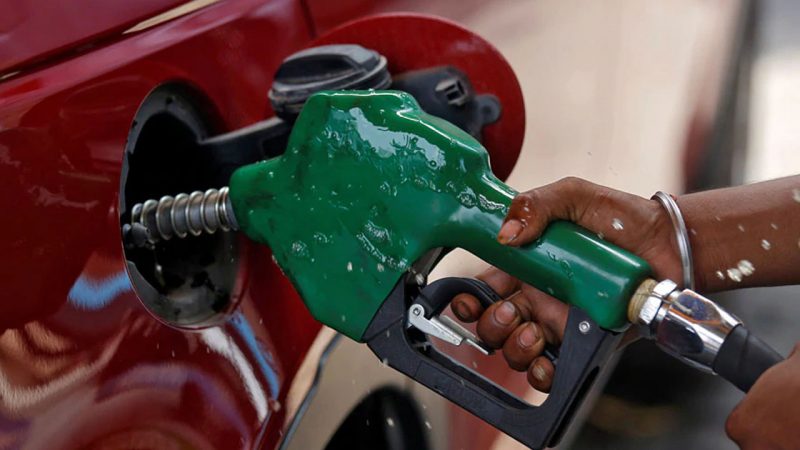
Petrol price may crash to N500/litre, say marketers
Prices of Premium Motor Spirit (PMS), popularly called petrol, may crash further in 2025.
Marketers reckon that the return of operations by Port Harcourt and Warri refineries in addition to Dangote refinery will bring down petrol price to about N500 per litre.
Industry experts, who spoke to Saturday Sun, noted that petrol, which currently sells for between N900 and N950 in many fuel stations, may have its price further crashing to as low as N500 a litre in the course of the year.
According to oil stakeholders, the likely drop in prices of petrol in 2025 is premised on a strong downstream sector propelled by the deregulation policy of the federal government.
According to industry players, other reasons for the price drop include stable foreign exchange policy, price competition, Naira-for-crude policy and the coming on stream of the Port Harcourt, Warri, and Dangote refineries. They also affirmed that for the refineries to sell their products in the domestic market and accept payment in naira will contribute to price fall.
The Federal Executive Council (FEC) had last July approved the sale of crude to local refineries for payment in naira.
In addition to this is the rebound of activities by modular refineries, which are now upbeat about the downstream sector and have concluded plans to add petrol refining to their stable of products in addition to diesel which hitherto was their sole product line.
This comes as Nigeria’s current daily petrol consumption has hit approximately 40 million litres with local production. According to truck out data from the Nigerian Midstream and Downstream Regulatory Authority (NMDPRA), Dangote Refinery contributes an average of seven million litres while NNPCL controls 1.2 million litres, bringing the total to 8.2 million litres.
READ ALSO:
- Wike: I won’t apologise to Odili, didn’t turn Rivers to personal estate
- Yar’Adua stopped refinery sale to Dangote over due process, paltry amount – Falana replies Obasanjo
- Saudi company SALIC to buy out Olam’s stake in Olam Agri
Modular refineries are out of the picture as they only produce diesel for now. The country currently has about 25 licensed modular refineries but only five are in operation.
This means that only 20.5 per cent of the country’s petrol need is met through local refining, while the remaining 79.5 per cent or 31.8 million litres are imported.
At the moment, the Dangote Refinery is producing about 30 million litres of petrol but only injects about seven million litres into the domestic market, a figure which increased by five million litres in October, up from its initial 25 million litres.
On the contrary, the 125,000 barrels per day Warri Refining and Petrochemical Company (WRPC), which commenced operations a few days ago, is operating at 60 per cent capacity with the production of Kerosene, Diesel and Naphtha.
Prior to the commencement of operations of Warri refinery, the 60,000 barrels per day old Port Harcourt Refinery, which commenced operations over a month ago, is injecting about 1.4 million litres of petrol via blending with straight-run gasoline, 1.5 million litres of diesel and 2.1 million litres of LPFO.
According to the Group Chief Executive Officer (GCEO), NNPC Ltd, Mr Mele Kyari, the 150,000 Port Harcourt Refinery 2 is currently undergoing rehabilitation and is at 90 per cent completion stage, ditto for the Kaduna Refinery which is also undergoing rehabilitation. But a presidency source told Saturday Sun that the Kaduna Refinery may not come on stream anytime soon due to the huge cost implication and other technical reasons.
Though Kyari had recently said NNPC was no longer importing petrol, major marketers and some private depot owners were still importing about 30 million litres daily to bridge supply shortfall.
READ ALSO:
- Lakurawa terrorists attack Kebbi community, kill 2 policemen, rustle 200 cows
- Youths beat Osun monarch for appointing Imam on disputed community
- Lagos commuter bus summersaults, LASTMA rescues 8 injured passengers
But the National Publicity Secretary of the Independent Petroleum Marketers Association of Nigeria (IPMAN), Mr. Ukadike Chinedu, in a telephone interview with Saturday Sun, said the coming on stream of Port Harcourt and Warri refineries is a game changer for the downstream sector as it will promote a healthy price competition as already being witnessed.
He said both the Nigerian National Petroleum Company Ltd and Dangote have reduced prices in the last three weeks, a signal to the gains of multiple sources of production.
Besides, he said the coming on stream of the NNPC Ltd refineries in addition to Dangote’s gives petroleum marketers and consumers the option of multiple sources of products as against a monopoly market.
Ukadike was upbeat that this development will see prices of petrol drop further below N500 per litre in 2025 as more players add capacity to refining petroleum products.
Again, he said the foreign exchange policy of the Federal Government is already yielding some positive results with a dollar exchanging for less than N1,800.
He added that if the trend was sustained, petroleum prices would crash further because more foreign exchange would be conserved when products are no longer imported.
He further disclosed that more modular refineries are now beginning to take steps to add petrol refining to their line of product because they are now certain of the market through improved product demand.
READ ALSO:
- Peter Obi has retired other political opposition figures – Reno Omokri
- Policeman celebrating promotion kills Ekiti woman in accidental discharge
- Peter Obi visits Dele Farotimi
According to him, all these improvements being witnessed in the sector is as a result of the deregulation of the downstream sector, which promotes efficiency, healthy rivalry and price competition among players to the benefit of the consumers.
The IPMAN Publicity Secretary further pointed out that the naira-for crude policy of the Federal Government is a major factor that will shape petrol prices in 2025 as it would tame inflation and reduce foreign exchange pressure
Also speaking, the President of the Petroleum Products Retail Owners Association of Nigeria (PETROAN), Mr Billy Harry, aligned with Ukadike.
Harry assured that the coming on stream of the Port Harcourt and Warri refineries would lead to cheaper fuel options for Nigerians.
The PETROAN President maintained that the possibility of affordable petrol for Nigerians is very feasible in 2025.
‘’As you can see, NNPC has reduced its ex- depot price from N1, 045 per litre to N899 per litre for marketers, translating to N925 per litre at the pumps for the end users. This, I must say, is very commendable. These are not small drops, but massive drops from N1, 045 to N899 ex- depot is a lot of drop.”
On the other hand, he said the Dangote refinery equally implemented a similar ex- depot price slash from N970 to N899.50 per litre. He pointed out that with the consistent availability of petroleum products, competition will set in and prices of petroleum products will drop further in the New Year.
In his submission, the Publicity Secretary of Crude Oil Refiners Association of Nigeria (CORAN), Mr Iche Idoko, said Nigerians would gradually begin to witness the gains, which is typical of a deregulated market.
“Price drop is one of the characteristics of deregulation we had highlighted. As the industry settles in to the regime of full deregulation, we are bound to see competitions amongst players, which ultimately will benefit the consumers.”
According to him, these competitions will be around prices, product quality, and credit lines available to bulk buyers.
This, he said, are the advantages that local refining brings. As more local refineries come on stream in the coming months, the industry shall see these positive trends of refiners and suppliers wooing consumers with price reduction and all manner of incentives.
Petrol price may crash to N500/litre, say marketers
SUN
-

 metro3 days ago
metro3 days ago‘Deepen Shariah knowledge to curb misinformation’
-

 metro2 days ago
metro2 days agoYouths beat Osun monarch for appointing Imam
-
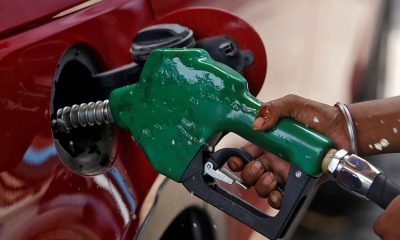
 Business1 day ago
Business1 day agoPetrol price may crash to N500/litre, say marketers
-

 Business1 day ago
Business1 day agoMeta deletes AI accounts after backlash over posts
-

 metro3 days ago
metro3 days agoIlorin: Retired works controller murdered on New Year’s Day
-

 metro3 days ago
metro3 days agoTinubu’s refusal to honour Seyi’s pact with us disappointing – Nnamdi Kanu’s family
-

 metro3 days ago
metro3 days agoJealous husband stabs Bishop to death over allege affair with wife
-

 metro2 days ago
metro2 days agoMosques should be research centres – Varsity don

